Maria Sharapova: Head questions Wada's stance on meldonium
- Published
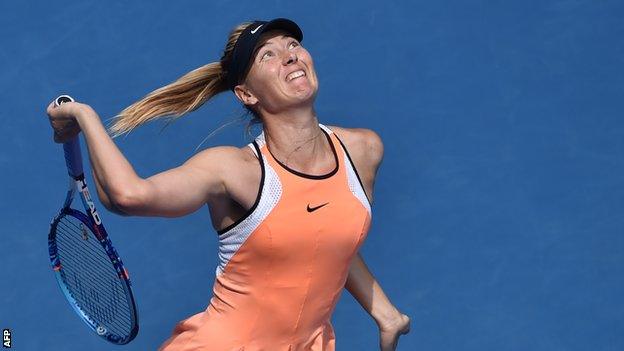
Sharapova is a five-time Grand Slam champion
Racquet manufacturer Head has questioned the decision to ban the use of meldonium, as they continue to stand by Maria Sharapova.
Sharapova tested positive for the drug which the World Anti-Doping Agency (Wada) added to their list of banned substances on 1 January.
Head wants Wada to scientifically prove why the drug should be banned.
Meanwhile, Wada has revealed that there have been 99 positive tests for meldonium since the start of the year.
Wada spokesman Ben Nichols added: "These cases were analysed by a number of different Wada-accredited laboratories and reported by many different National Anti-Doping Associations and international sport federations."
Russia's Sharapova tested positive at the Australian Open in January.
The five-time Grand Slam champion, 28, will be suspended from 12 March and could face a four-year ban.
She has already lost the backing of key sponsors, but Head, who plan to extend their contract with Sharapova, said she made an "honest mistake".
Britain's Andy Murray, who is also sponsored by Head, said the manufacturer had taken a "strange stance".
A statement from Head, who believe the drug should not be prohibited but instead come with a dosage limit, said: "We question Wada's decision to add meldonium to its banned substances list in the manner it did; we believe the correct action by Wada would have been to impose a dosage limitation only.
"In the circumstances we would encourage Wada to release scientific studies which validates their claim that meldonium should be a banned substance."
Meldonium, also known as mildronate, was developed to treat diabetes and various heart-related diseases.
Sharapova, who has taken the drug since 2006, said she did so following frequent bouts of flu, abnormal electrocardiogram results and some indicators of diabetes.
Meldonium's inventor Ivars Calvins told BBC Radio 5 live that athletes could die if they are denied access to the drug.
Former Wada president Dick Pound criticised the Head statement, telling BBC Radio 5: "First and foremost, Head is a manufacturer and seller of tennis rackets, among other things.
"So far as I'm aware, it's not a medical expert and not in a position to amend the world anti-doping code.
"As for its view as a commercial racket seller as to whether meldonium should be on the list of prohibited substances or not, quite frankly I prefer the scientific opinion of medical experts to the commercial interest of somebody telling tennis rackets using a player who is subject to whatever discipline is called for under the world anti-doping code.
"A complete conflict of interest on its part, combined with a lack of knowledge of the particular substance."
- Published10 March 2016
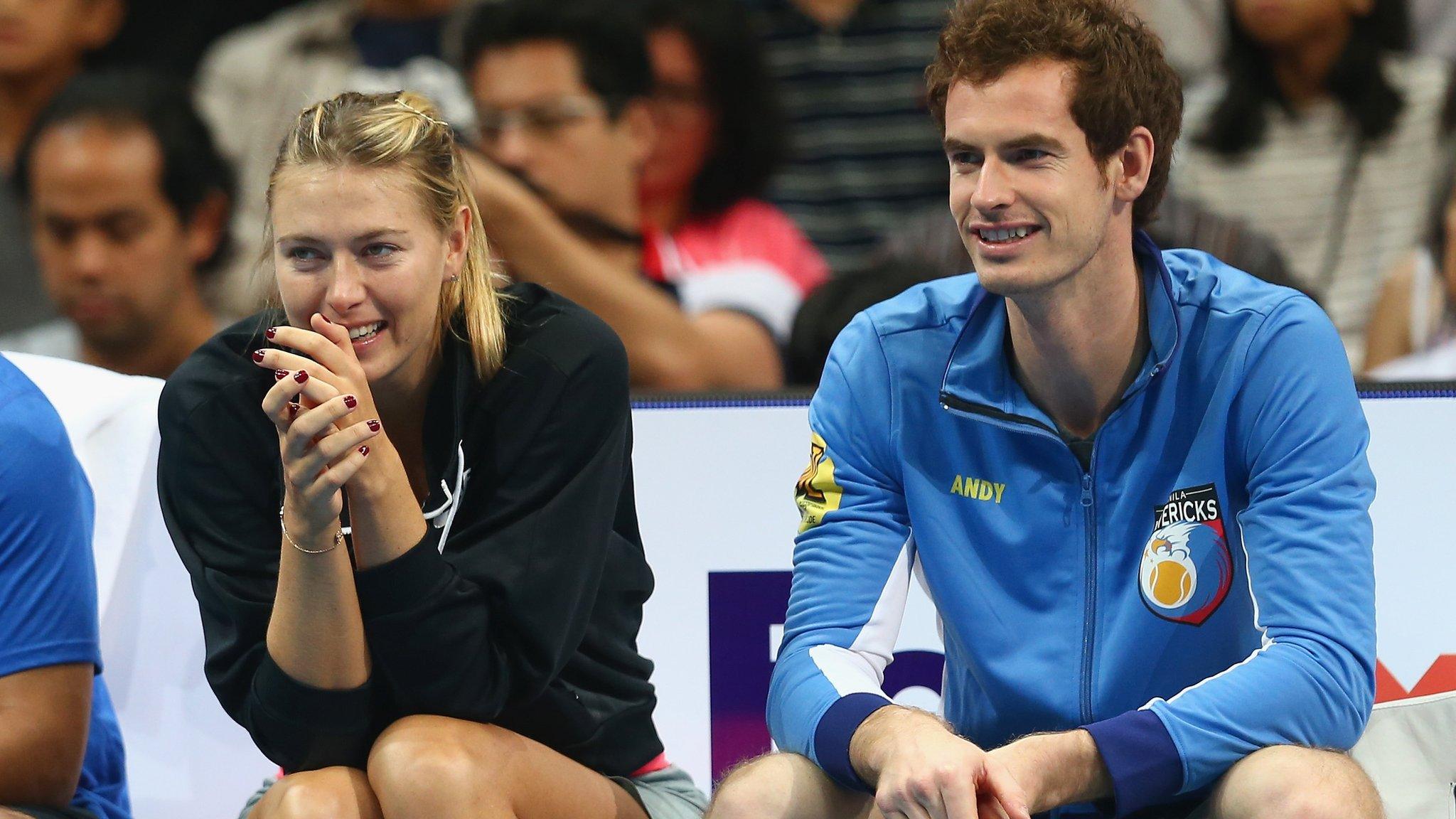
- Published10 March 2016

- Published9 March 2016
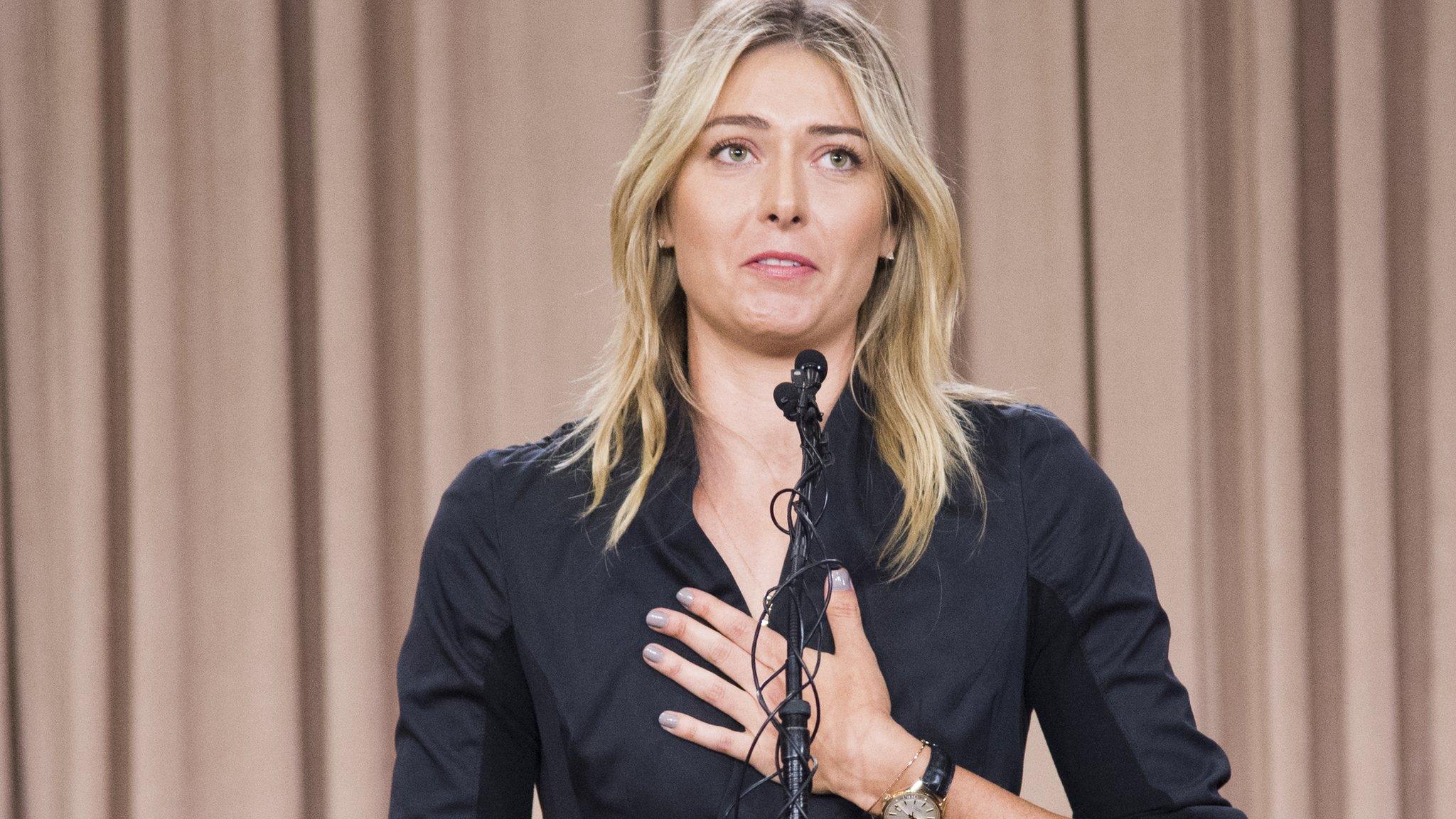
- Published8 March 2016
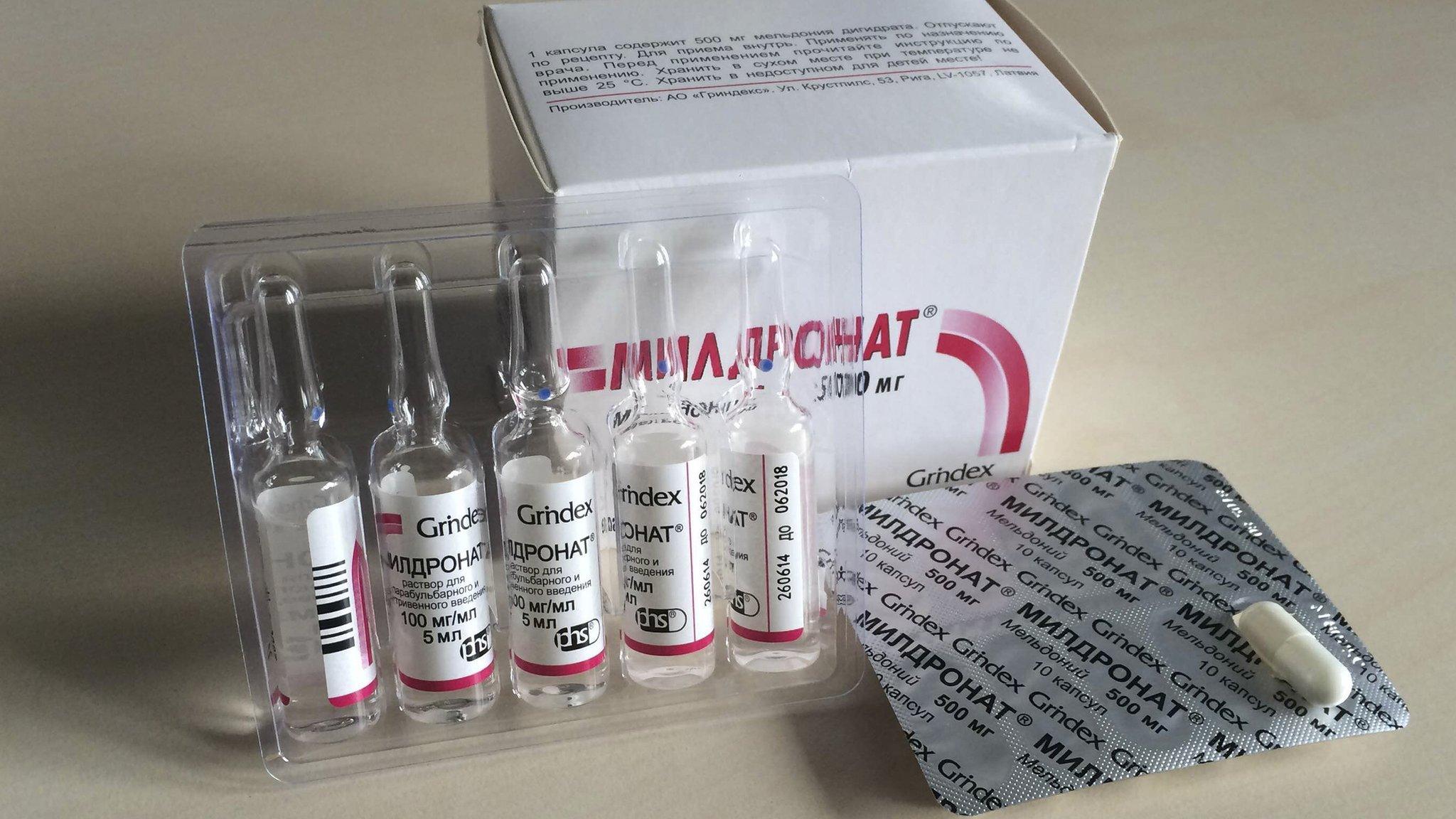
- Published17 June 2019
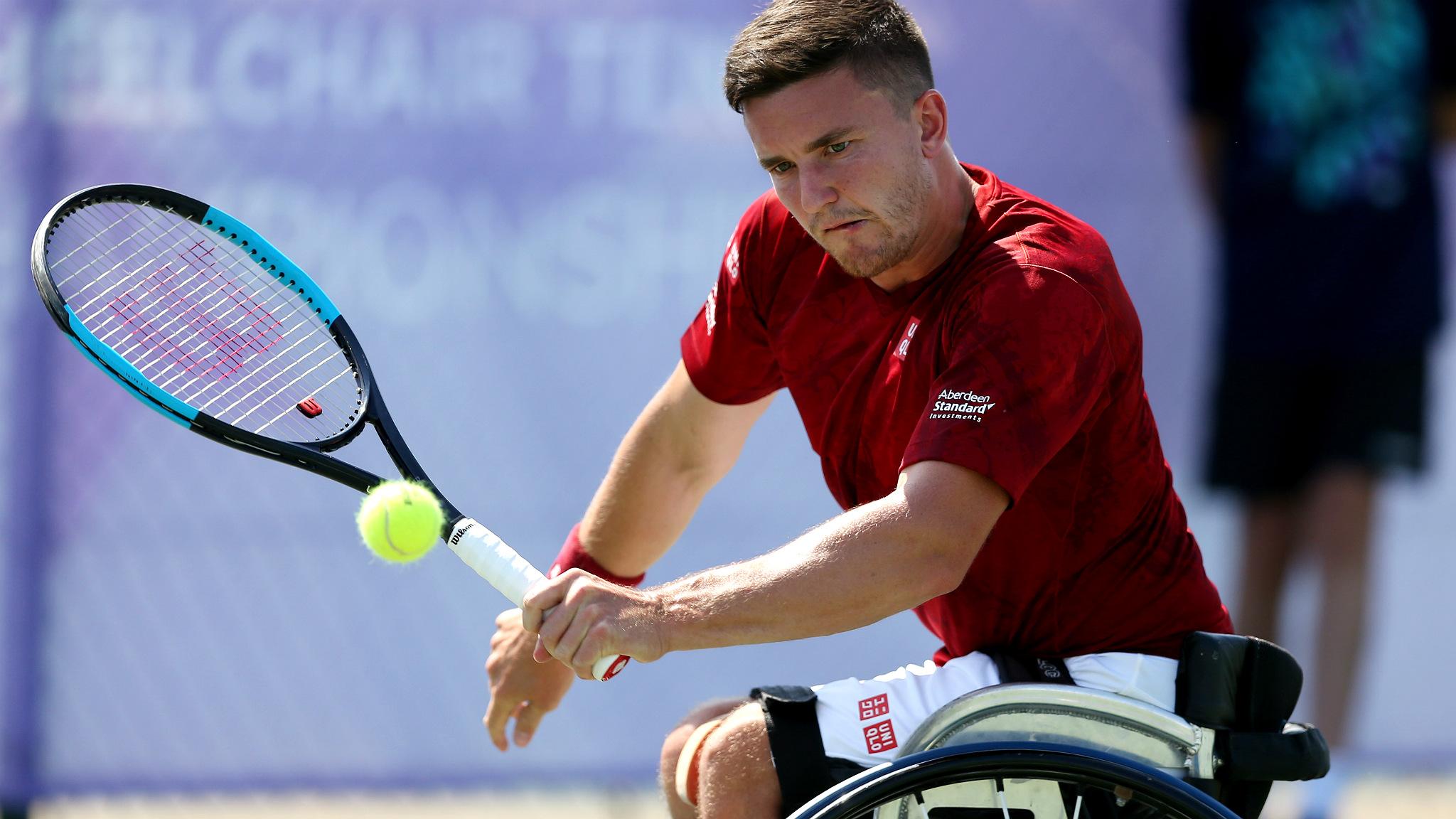
- Published19 July 2016
